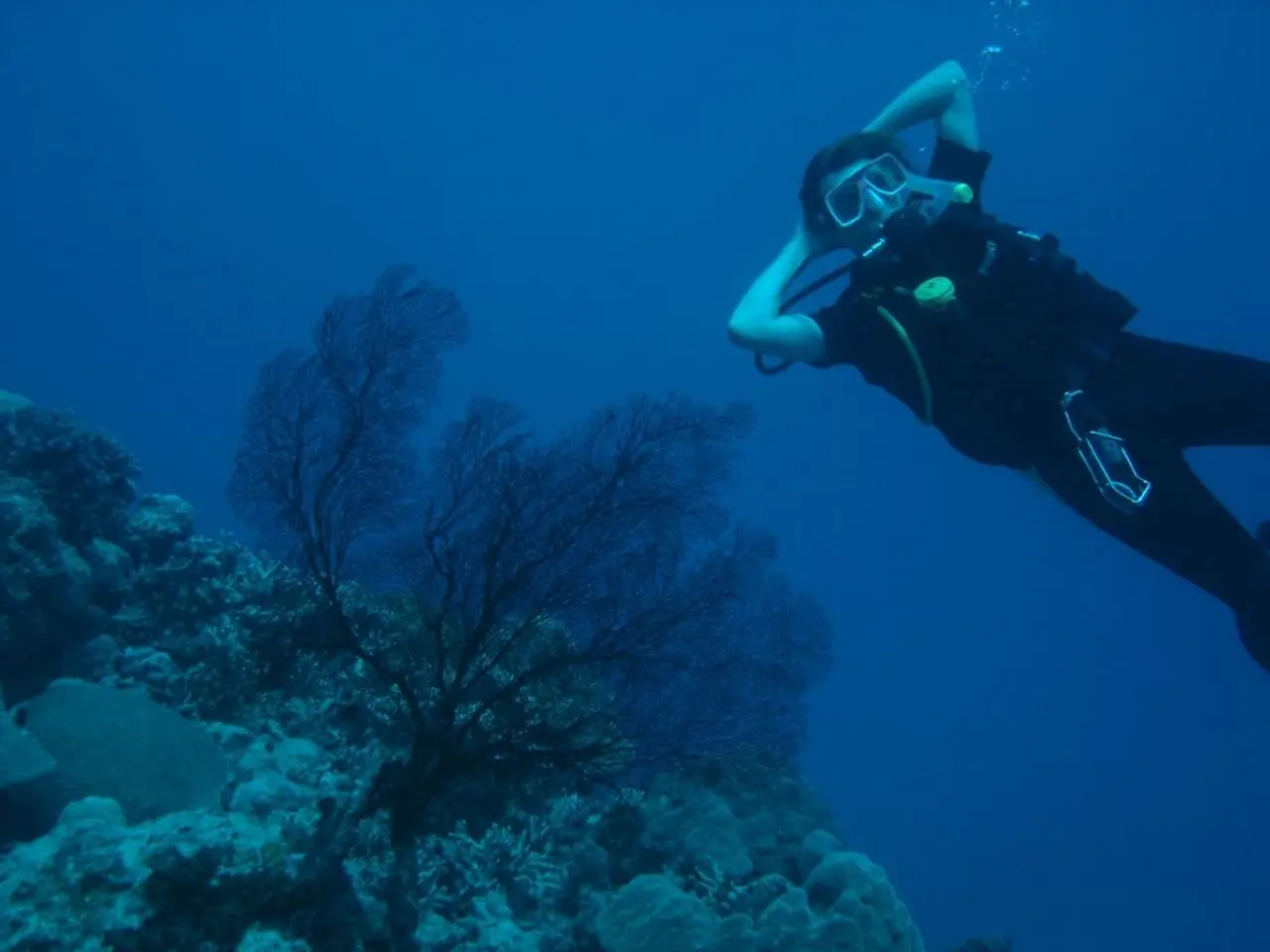Fuelling Controversy: Meyer's Stance on Borkum Gas Extraction - Federal Government's Questionable Gift to Gas Giants
- *
Gas Companies Receive Gifts Distribution from Federation Over Borkum - Federal administration disperses presents to gas corporations on Borkum island
The federal government is on the brink of sealing a contentious deal with the Netherlands regarding gas extraction near the North Sea island of Borkum, as per Lower Saxony insights. The hastiness in this matter is unusual, remarks Lower Saxony’s Environmental Minister, Christian Meyer (Greens), to the German Press Agency, pointing to the impending legal battles over the energy venture. "The new federal government seems to be disregarding its own climate targets and is thus doling out election goodies to fossil gas conglomerates - on the precipice of our unique World Heritage site."
Indeed, it is about an international treaty under international law between Germany and the Netherlands, which has been in negotiations since summer 2022. As per the ministry in Hanover, the so-called unitarization agreement is scheduled for the federal cabinet's agenda next Tuesday. This timeframe is also reported today by the "Playbook Podcast" of "Politico". Yet, the federal government has yet to confirm.
Lower Saxony's Reservations
This appears to be a U-turn by the federal government. Former Federal Minister for Economics, Robert Habeck (Greens), stated during his term in August 2024 that he would hold off signing the agreement until possible court rulings.
An environmental coalition centred around the German Environmental Aid (DUH) and the island of Borkum is challenging the gas extraction at the Higher Administrative Court in Lüneburg. They fear potential damage to the neighboring UNESCO World Heritage Site, the Wadden Sea. A decision on the case is yet to be made.
Ultimately, it would be up to the courts to decide the gas extraction question, says Minister Meyer. "Even if the federal government opts for a gas extraction agreement with the Netherlands, the courts' decisions in this matter should be waited upon."
The Green politician draws attention to a pending legal proceeding concerning a sea cable for the extraction platform's connection. "Therefore, the federal government's urgency to conclude the unitarization agreement at present is uncanny," says Meyer.
The Environmental Aid also views it premature to finalize an agreement. "We urge the federal government to remove the issue from the agenda and await the outcome of the legal proceedings," states DUH energy expert Constantin Zerger. With approval, the federal government would allegedly "be succumbing to the demands of the Dutch company One-Dyas and pushing environmental and climate protection to the back burner," he says.
Greenpeace questions the federal government's decision to yoke Germany to fossil energy through such an agreement. "Instead of persistently catering to the fossil lobby, Economics Minister Katherina Reiche should solely focus on the expansion of renewable energies," says Greenpeace energy expert Anike Peters. "For they guarantee sustainable energy security and render us free from international markets and crises."
The Controversial Energy Project in Schiermonnikoog and Borkum Isles
The energy project near the Schiermonnikoog and Borkum isles has beleaguered discussions for years. The Dutch energy firm One-Dyas intends to extract gas from a transboundary deposit in the area. In late March, One-Dyas announced it had kickstarted gas extraction, initially in a trial phase and within Dutch territorial waters. However, the company aims to extract gas from beneath the seabed in German territory using an offshore platform. The Lower Saxony State Office for Mining, Energy, and Geology had granted a 18-year permit for this purpose in 2024.
Apart from the mining permits, the gas extraction also necessitates a treaty between the two countries. "The treaty's key provisions concern the division of the deposit, cross-border collaboration between authorities, and the levying of field and extraction fees," the Federal Ministry of Economics and Technology previously stated.
One-Dyas contends that domestic gas extraction decreases dependence. CEO Chris de Ruyter van Steveninck argues that further gas fields could be developed from the extraction platform, potentially boosting production to up to three percent of Germany's gas demand. "At a time when we're seeking ways to reduce our reliance on nations like the USA and Russia, and supply our energy requirements as locally as feasible," he says.
Yet, Meyer counters that Lower Saxony aspires to reach climate neutrality by 2040. "There no longer exists a gas shortage due to the boom in renewable energies, declining consumption, sufficient storage, and underutilized LNG capacities," says Meyer. "Therefore, additional fossil gas or coal power plants are unnecessary."
- Gas Extraction
- Environment
- Climate Change
- North Sea Island
- Borkum
- Federal Government
- Brown Energy
- Renewable Energy
- Lower Saxony
- Greenpeace
- Wadden Sea
- World Heritage Site
- Economic Lobby
- Netherlands
- Germany
- Legal Proceedings
- Court Rulings
- One-Dyas
Enrichment Data:
Lower Saxony criticizes the proposed gas extraction project near Borkum due to environmental concerns and its intrusion upon the state's green energy aspirations. This project is viewed with significant opposition from both the state government of Lower Saxony and environmental organizations, among them Greenpeace.
Reasons for Lower Saxony's Criticism:
- Lower Saxony is concerned about the ecological impact of fossil fuel extraction in a region that is also a hub for renewable energy projects, key to Germany’s energy transition goals.
- The state government is alarmed about the hazard fossil fuel exploitation may pose to the marine environment and the regional economy, particularly since North Sea islands are heavily reliant on tourism, fishing, and renewable energy initiatives such as wind farms (notably the Borkum Riffgrund 3 wind project nearby).
Concerns of Environmental Organizations and Greenpeace:
- Greenpeace and environmental groups stress the climate implications, ecosystem harm, and the call for a focus on renewable energy instead of fossil fuels.
- They argue that such projects undermine investments in offshore wind energy and other renewables, which boast stronger environmental credentials and long-term sustainability.
- Environmentalists are wary of continued investment in fossil fuel infrastructure, fearing that these projects run counter to the urgent need to reduce greenhouse gas emissions and combat climate change.
- Greenpeace likely insists on a moratorium on gas extraction to align with Germany’s climate targets and protect the fragile North Sea environment.
- The Green politician, Christian Meyer, questions the federal government's urgency to conclude the unitarization agreement for gas extraction near the North Sea island of Borkum, stating that it disregards the climate targets and undermines investments in renewable energy, potentially causing harm to the unique World Heritage site, the Wadden Sea.
- Greenpeace raises concerns about the federal government's decision to yoke Germany to fossil energy through an agreement, arguing that it persistently catering to the fossil lobby and pushing environmental and climate protection to the back burner, while insistently focusing on the expansion of renewable energies guarantees sustainable energy security and freedom from international markets and crises.





